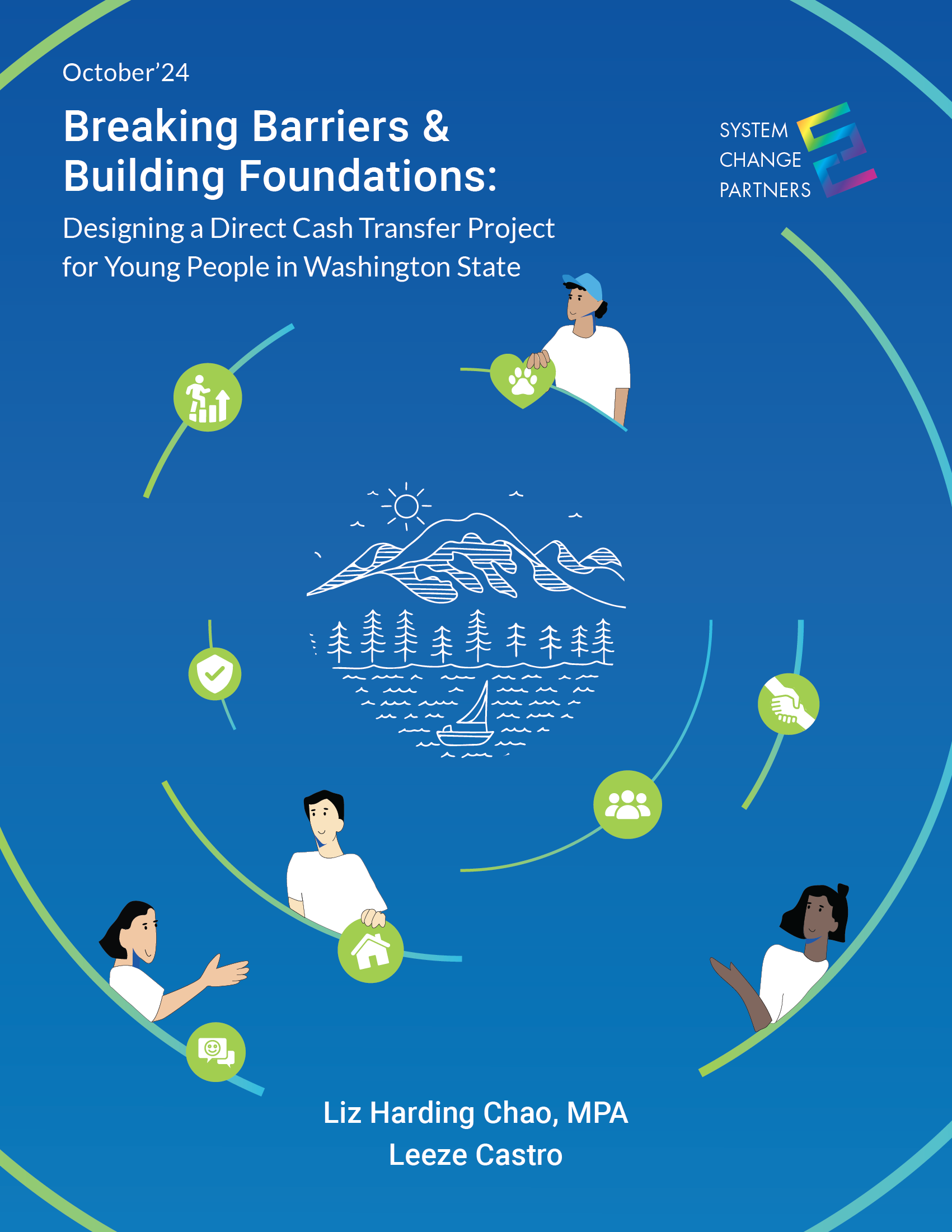
In August 2024, we joined with Point Source Youth (PSY) and the Office of Homeless Youth at the WA Department of Commerce to work with young people across WA to co-design a Direct Cash Transfer (DCT) project. Instead of traditional focus groups that treat participants as research subjects, we did “co-design sessions,” where we collaborated with young people to design the program. We also relied on the leadership of PSY’s Youth Consultants who helped design research questions, activities, and facilitated the in-person and virtual sessions.

In August 2024, we joined with Point Source Youth (PSY) and the Office of Homeless Youth at the WA Department of Commerce to work with young people across WA to co-design a Direct Cash Transfer (DCT) project. Instead of traditional focus groups that treat participants as research subjects, we did “co-design sessions,” where we collaborated with young people to design the program. We also relied on the leadership of PSY’s Youth Consultants who helped design research questions, activities, and facilitated the in-person and virtual sessions.
In total, we heard from 87 young people across 14 WA counties on how they want a future DCT project to be implemented in WA. We used arts-based and creative evaluation methods to center our values of racial/LGBTQIA2S+ equity, centering youth and being trauma-informed. We also prioritized hearing from young people who are often not represented in conversations about youth homelessness, such as Indigenous youth living on or near Reservations in rural communities. We were honored to be invited to the Yakama Nation Cultural Center to conduct a co-design session with Indigenous youth in Toppenish.
We are thankful to all the young people who shared their stories and experiences, and we hope that this report, Breaking Barriers & Building Foundations: Designing a Direct Cash Transfer Project for Young People in Washington State, will strengthen the chances of a DCT project receiving legislative funding in 2025.
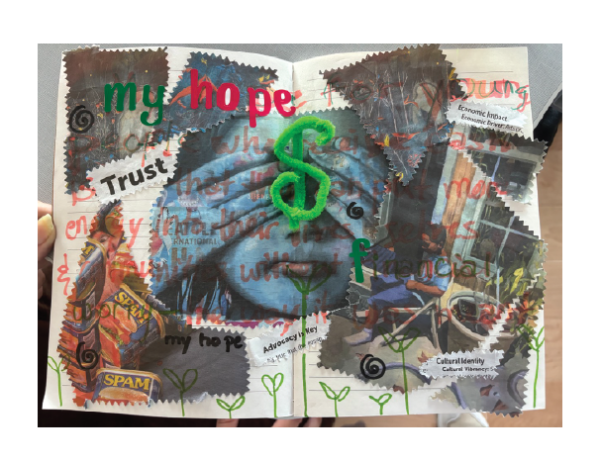
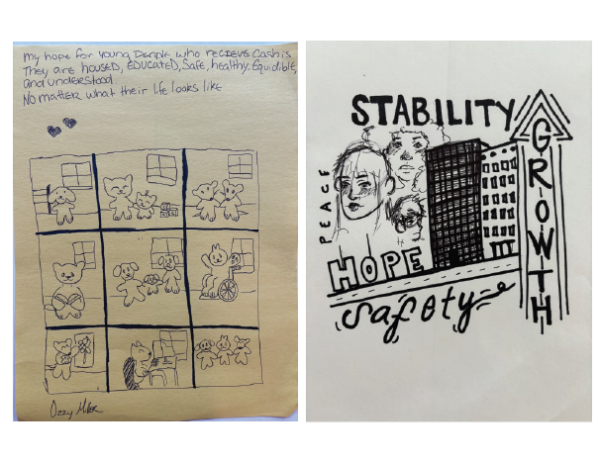
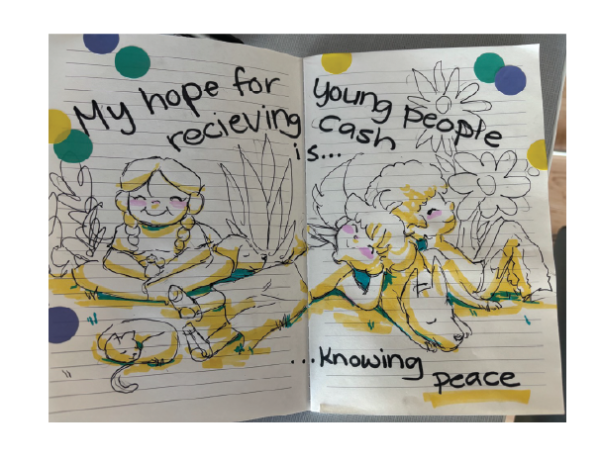
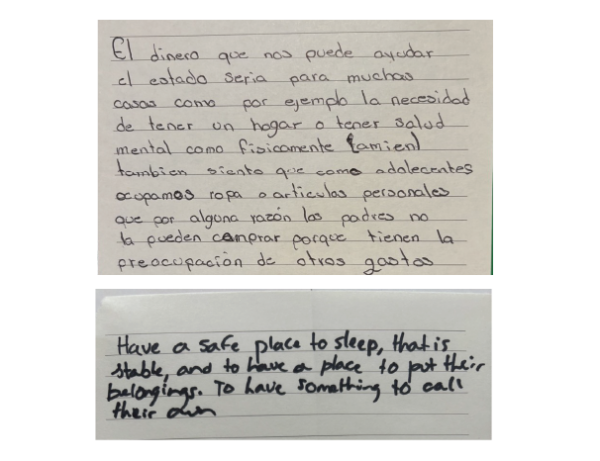
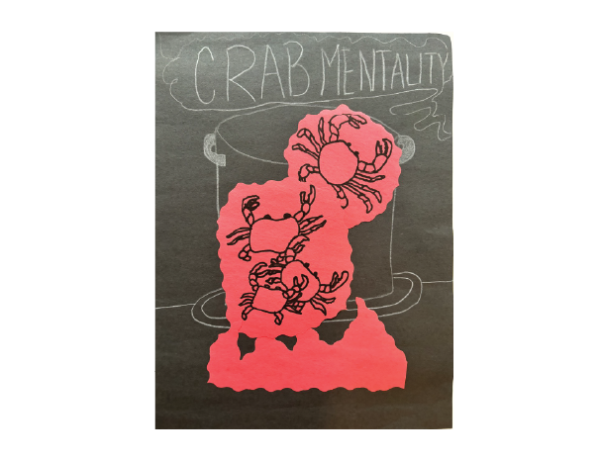

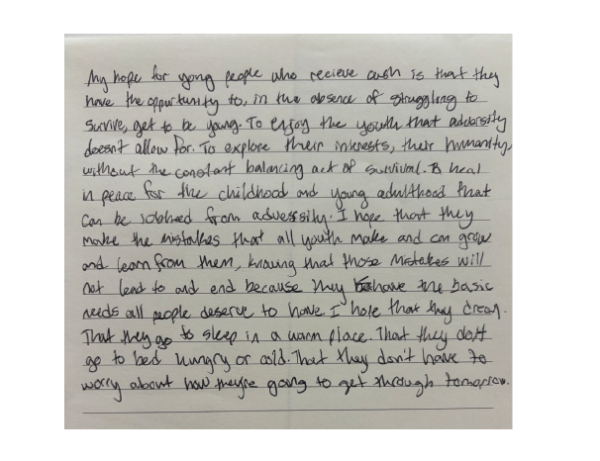
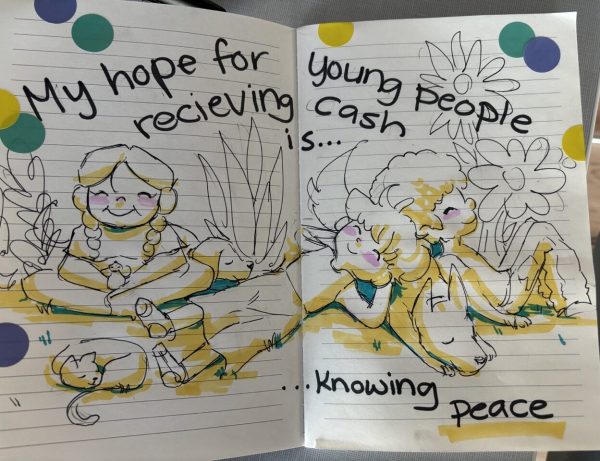
Summary of our major findings/recommendations:
- 70% of session participants for which data was available were experiencing homelessness or housing instability. These young people reported that on average, less than $2,000 was required to stabilize their housing. DCTs provide an avenue to significantly change the trajectory of many young people’s lives, increasing their wellness, stability, financial empowerment, and improving their mental and physical health. And most importantly, making sure that they can experience joy.
- Young people want the age range for eligibility to be 16 to 26 years old, to include unaccompanied minors as well as 25 and 26-year-olds who have aged out of traditional services but still need support.
- A DCT project in WA should prioritize specific populations of young people who are significantly marginalized in traditional homeless response systems, such as unaccompanied minors, Indigenous youth, young parents, young people with disabilities, and young people at the intersection of multiple of these identities.
- There is significant support from young people, service providers, and other stakeholders across WA to implement a DCT program for young people.
- Supportive services should be provided in addition to cash. The most popular supportive services identified by young people included: mental health and therapy, housing navigation, employment support, financial empowerment, case management, legal services
– Liz Harding Chao, MPA
Leeze Castro